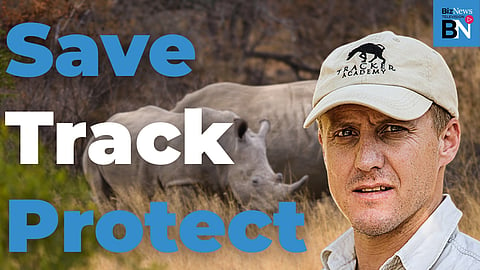Traditional tracking skills join Kruger National Park’s rhino fight – Alex van den Heever (Tracker Academy)
Rangers are fighting an uphill battle against rhino poaching in South Africa’s Kruger National Park. In the weeks leading up to Christmas, poaching is expected to spike, as it did in 2024. Despite dehorning programmes and stronger arrests, convictions, and prosecutions, 35 rhinos were lost in the first weeks of 2025 alone. The pursuit by transnational syndicates remains relentless. To strengthen its response, SANParks has partnered with the Tracker Academy to retrain field rangers in advanced man‑tracking and bushcraft skills. Manager Alex van den Heever told BizNews the initiative is groundbreaking. The focus, he explained, is not on chasing poachers but on tracking the rhinos themselves and proactively protecting them before syndicates strike. It’s an approach that has been used before, but the Tracker Academy aims to embed it permanently in Kruger, a park whose rhino population has been decimated by poaching from 12,000 a decade ago to just 2,000 today.
Sign up for your early morning brew of the BizNews Insider to keep you up to speed with the content that matters. The newsletter will land in your inbox at 5:30am weekdays. Register here.
Support South Africa’s bastion of independent journalism, offering balanced insights on investments, business, and the political economy, by joining BizNews Premium. Register here.
If you prefer WhatsApp for updates, sign up to the BizNews channel here.
Watch here
Listen here

